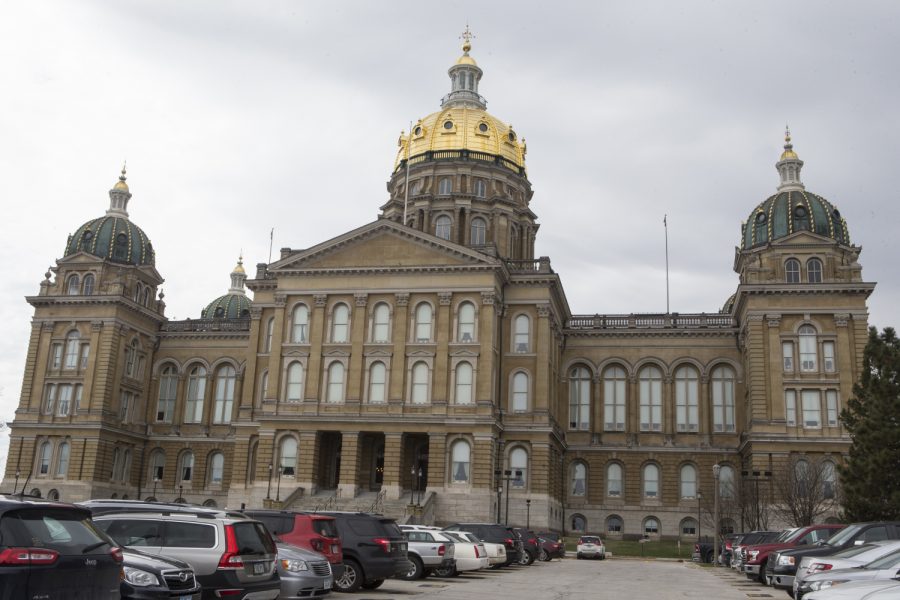Opinion: Iowa parents deserve to have input on what their children are taught
The spiked LGBTQ curriculum bill is an example of how parents can get more involved in the education system.
The Iowa State Capitol building is seen in Des Moines on April 9, 2019.
February 23, 2020
An Iowa House subcommittee recently advanced a bill that would require public schools to notify parents of any curricula that pertain to sexuality or gender identity. It would also give parents a choice to pull their children out of class when such topics are being discussed. While the bill didn’t make it out of committee, it raises some important discussions about parental roles in the education system.
Some claim this would restrict teachers from having a meaningful discussion about someone such as Pete Buttigieg, the former South Bend, Indiana mayor and Democratic presidential hopeful who would be the first openly gay nominee.
One of the bill’s co-sponsor’s, Rep. Sandy Salmon, R-Janesville, told the Des Moines Register that the bill respects parents’ individual views.
“Not all students, parents or families agree with the viewpoint held by many schools regarding sexual orientation or gender identity issues,” she said. “And they should be allowed to opt out of instruction that contains that.”
Of course, issues surrounding identity are sensitive, and I hope that lawmakers will address these topics with further nuance and gradation in any future legislative efforts.
While it would be appropriate for sophomores in a civics class to talk about the historical intrigue of Buttigieg as the first openly gay candidate to come out on top of the Iowa caucuses, the same discussion with a group of second graders would understandably be more questionable from the perspective of socially conservative parents.
The concerns from parents and groups who support this bill are not unthinkable. For example, the Iowa City Community School District began including LGBTQ topics in its curriculum in 2018 over the protests of many local parents, according to an article from the Iowa City Press-Citizen. New directives issued by the state of California support teachers having discussions on complex topics such as gender fluidity as early as kindergarten.
And again, the bill doesn’t ban schools from discussing LGBTQ issues; it just notifies parents and allows them to make the choice they think is best for their child. No parent should feel coerced into homeschooling their children for fear of an agenda that contradicts their religious values.
This is not a gay-specific issue; in general, sex education is inappropriate for younger children. A group called Iowa Safe Schools offers a “Schoolwide Pride Guide” with pro-LGBTQ lesson plans and materials for K-5 classrooms. One of the children’s books they provide is Stonewall, which romanticizes the 1969 gay pride riots.
To me and many of my fellow Catholics, this seems more like indoctrination than education.
Religious groups are justifiably prohibited from entering public schools with their anti-abortion and pro-traditional marriage literature. By the same token, secular progressives from advocacy groups such as Iowa Safe Schools should not be allowed to push their agenda on Iowa children, especially in elementary schools.
Just over 23 years ago there was a major cultural controversy when TV show host Ellen DeGeneres came out as a lesbian, and I’m pleased that American society has become so tolerant of people like her so they no longer feel compelled to hide who they are. I have nothing against gay and transgender people, but extending equal rights to them should not entail trampling the priorities of traditional Christians, Jews, and Muslims who want to raise their kids in accordance with their faith.
This is not a draconian bill. It’s a reasonable initiative to increase the transparency that schools provide to parents. It’s about enabling parents. That’s an example of leadership for state legislatures around the country to follow.
Columns reflect the opinions of the authors and are not necessarily those of the Editorial Board, The Daily Iowan, or other organizations in which the author may be involved.






